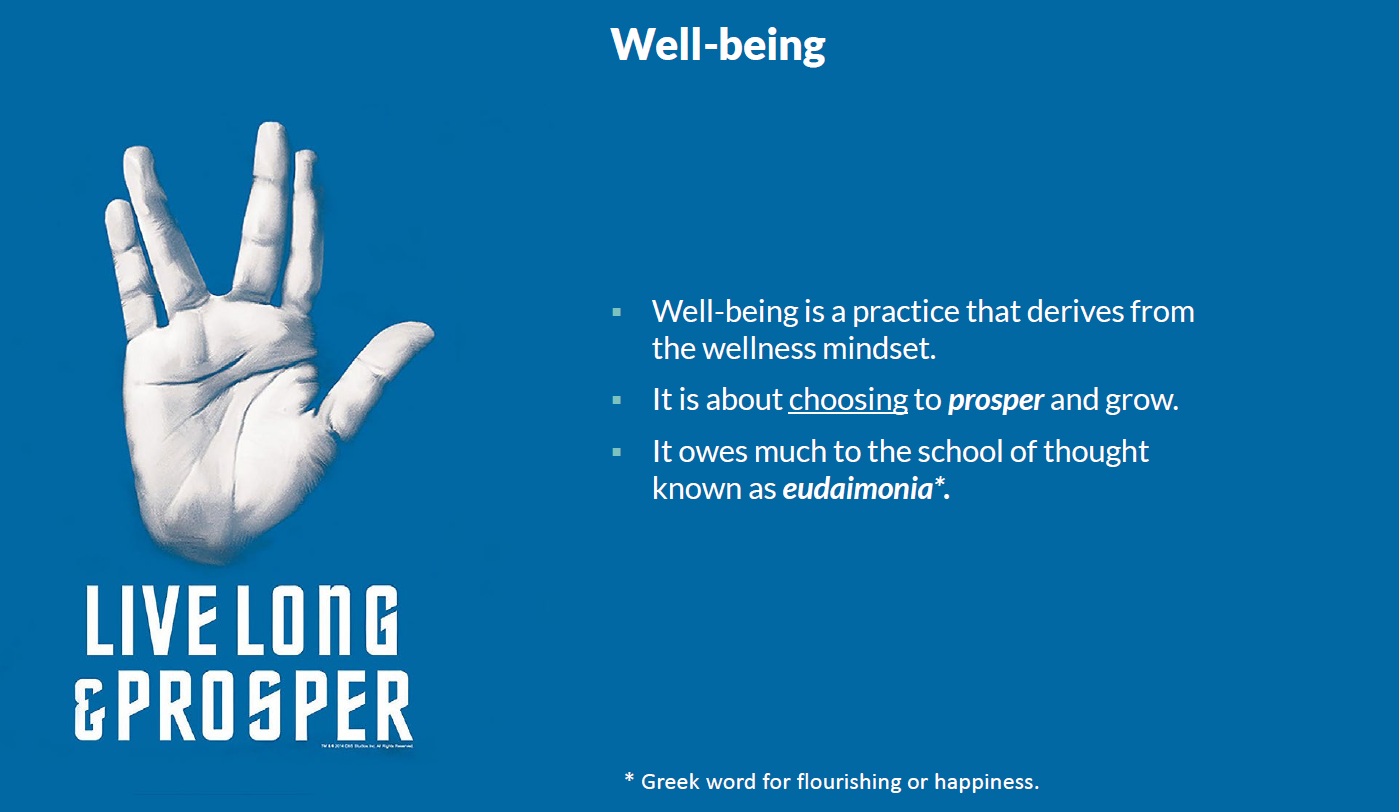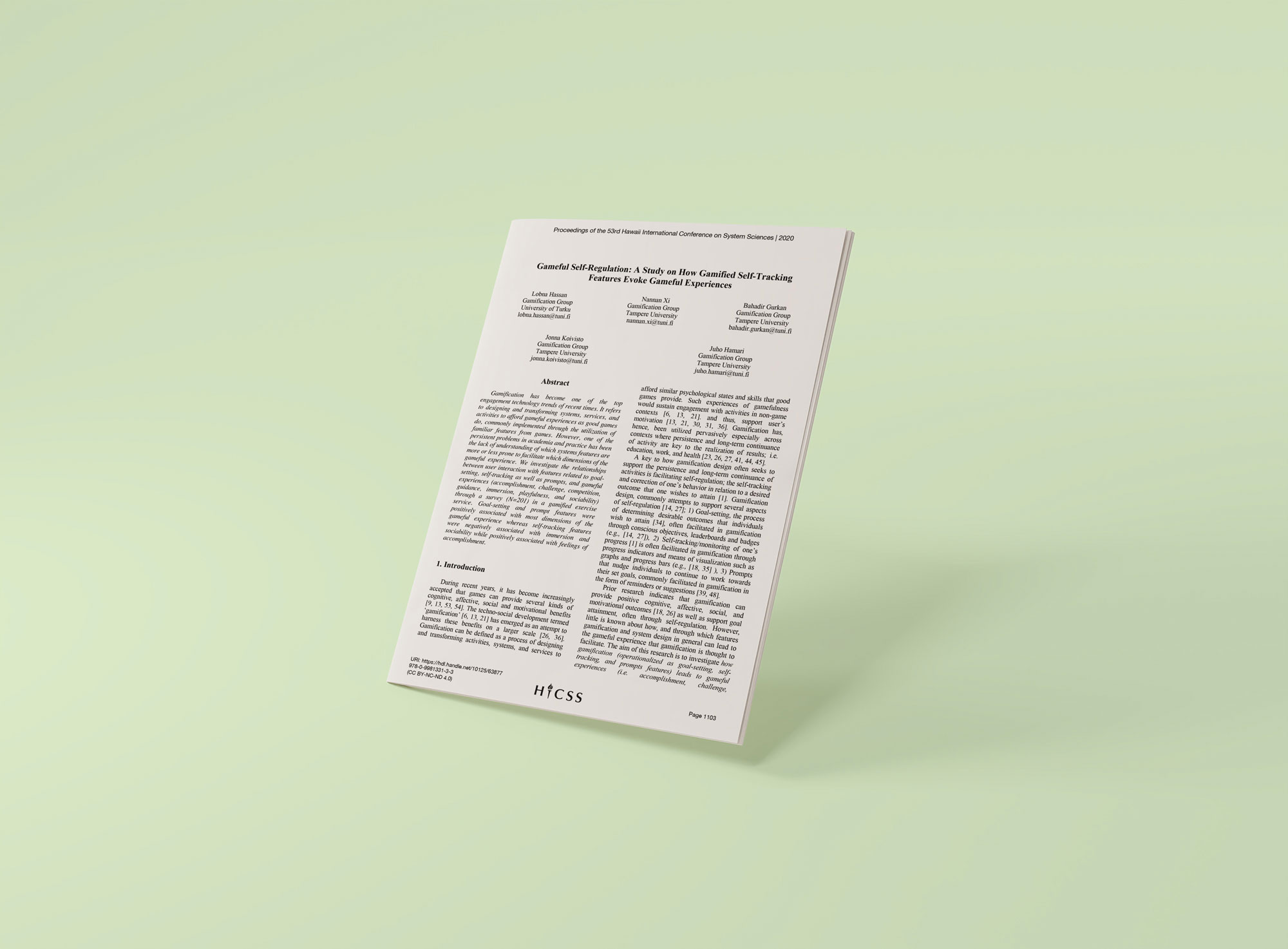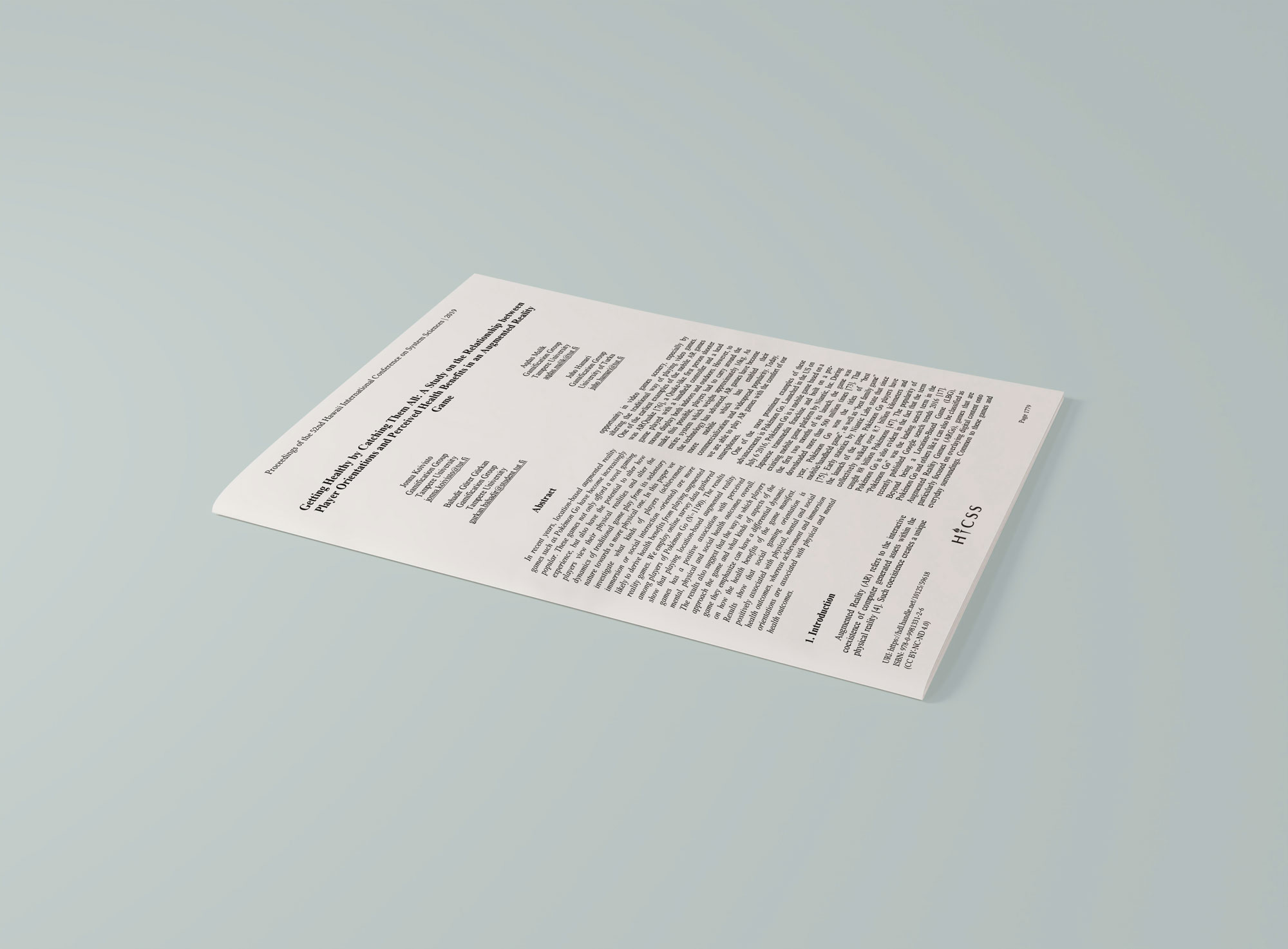for & date
![]()
Tampere University
own role
![]()
Ph.d. Researcher, University lecturer
team
![]()
Gamification Group; Prof. Dr. Juho Hamari and Dr. Jonna Koivisto as co-supervisors
deliverables
![]()
Academic publications and graduate-level course materials
Research questions
- How do different gamification implementations affect motivations and behavior in health/wellness applications?
- What game mechanics do gamification systems adopt to improve health?
- How do people adopt gamified health and wellness applications?
- What is the function and effect of scoring mechanics in gamified health and wellness applications?
- What is the function and impact of goal orientation in gamified health and wellness applications?
- What is the function and effect of social mechanics in gamified health and wellness applications?
In mid-2017, I was awarded a 50.000,00€ grant by the Satakunta University Foundation to research the gamification of healthy lifestyles and wellness applications. With that, I started my doctoral studies on gamification and well-being at the HCI department of Tampere University (Previously known as the Tampere University of Technology). My main research supervisor was Prof. Juho Hamari. With me onboarded, he, others, and I found the Gamification Group as our research team. During my one year of research, I (with my co-authors) published two academic papers.

The title of my first publication is “Getting Healthy by Catching Them All” In this work, we investigate what kinds of players (achievement, immersion, or social interaction-oriented) are more likely to derive health benefits from playing augmented reality games. We employ online survey data gathered among players of Pokémon Go (N=1190). The results show that playing location-based augmented reality games has a positive overall association with perceived mental, physical and social health outcomes. The results also suggest that the way in which players approach the game and what kinds of aspects of the game they emphasize can have a differential dynamic on how the health benefits of the game manifest.

The title of my second publication is “Gameful Self-Regulation: A Study on How Gamified Self-Tracking Features Evoke Gameful Experiences“. In this study, we investigate the relationships between user interaction with features related to goal setting, self-tracking as well as prompts, and gameful experiences (accomplishment, challenge, competition, guidance, immersion, playfulness, and sociability) through a survey (N=201) in a gamified exercise service.

In addition to my publications, I also held a graduate-level lecture on gamification and well-being. The purpose of this lecture is to introduce the audience to the basics of gamified health and well-being as well as the industrial applications of the topic.

